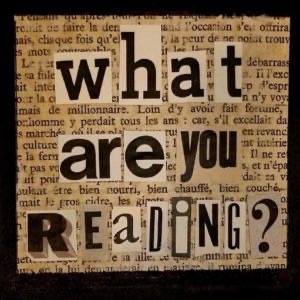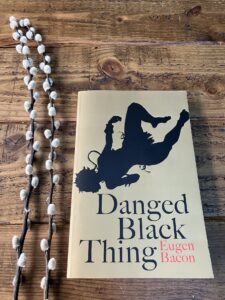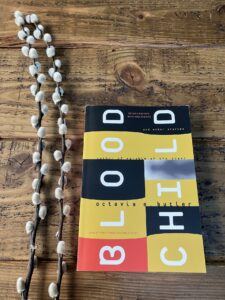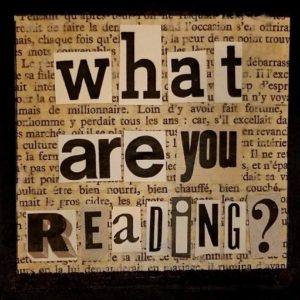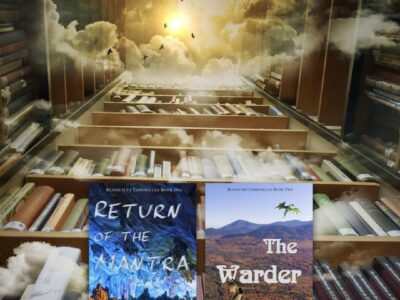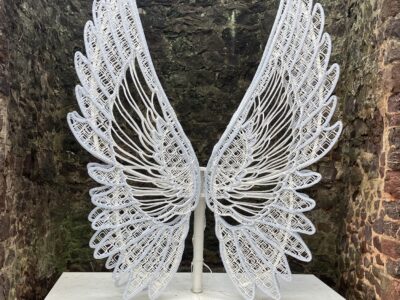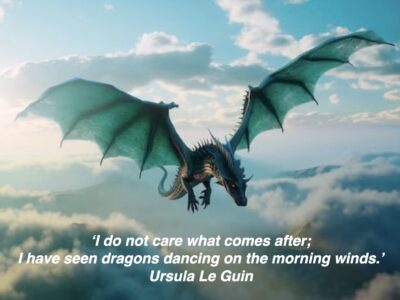
It is just over a week ago that I returned from the International Science Fiction Convention, Worldcon 2024 in Glasgow, and what a magnificent few days it was. I have lots to catch up on and share, the sights and inspirations, but first I want to begin with a few thoughts on my latest read, a woman who kept me company for the convention, whose words have been ringing in my ears for many years, the wise and deeply human, Octavia Butler, whose ‘The Last Interview’ was a joy to read.
Octavia Butler was a survivor, a dreamer and a loner. She was painfully shy as an adolescent, dyslexic, and ‘probably’ gay was her literal answer to a direct question. Bloodchild was about male pregnancy. She enjoys working in SF for the freedom it offers, the ability to go into any technological or sociological problem and extrapolate from there. Her work is underpinned by concepts of power, told in worlds of different races, sexes and cultures, with interest in powerless people gaining power. A theme I very much identify with as a context for my own work.
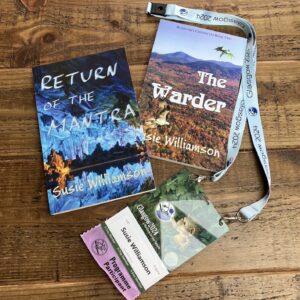
I first read Octavia Butler when I was a young teen, starting with Kindred. Dana Frankin, a Black woman from an interracial marriage in LA in 1976, is mysteriously and repeatedly plucked back in time to 1824 Maryland and to a moral dilemma involving her white ancestor. The author describes how it was purposeful to give Dana a white husband, to complicate her life, and it was purposeful to make her lose her arm, to demonstrate that she could not come back whole from those experiences. The perspective is told from the viewpoint of not what it might have been like for her ancestors, but rather what it might be like for her, how slavery might reshape her emotionally, whether the compromises and capitulations she would have to make might destroy her, and if not, why not?
Octavia Butler speaks of striving to tell a good story, to take the reader to a world they haven’t seen before, one she has enjoyed creating. She subverts expectations about race, gender, and power, incorporating strong women, multiracial societies and aliens who challenge humanity’s penchant for destruction. In Bloodchild, she wanted to subvert expectation of the invasion story, often represented as humans colonising other planets and either facing aliens who resist, or who submit and become good servants. The author created another possibility in the Oankali, a centipede-like creature that you’re not supposed to regard as evil. It is a species that do not force or rush humans into mating but rather try to bring them in gradually. And in Adulthood Rites, the Oankali become convinced that they cannot destroy the humans who participate, and that humans deserve an untouched world of their own, even if it is Mars.
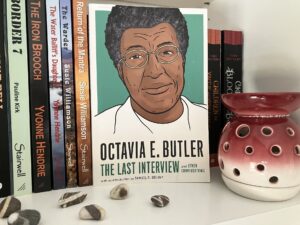
Octavia Butler advocated for write what you care about, rather than write what you know, (or what you think you know, which is often just regurgitating ideas you have been told, ideas you might tell yourself you believe, when in fact you don’t). Writing can push back against human laziness that is prone to stereotyping as a form of shorthand, that might be a way to deal more with the things we care about and less with the other, but it is reductive and can prevent us from discovering things we could want to know.
Last word:
“Feminism is freedom. It’s the freedom to be who you are and not who someone else wants you to be. And science fiction? Science fiction is wide open. You can go anywhere your imagination can go.”
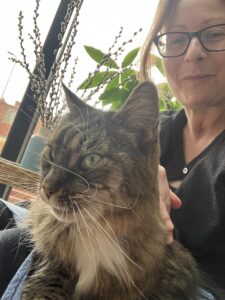
xxx
